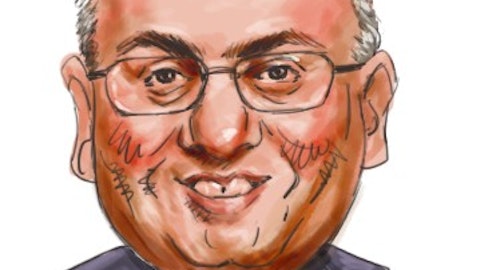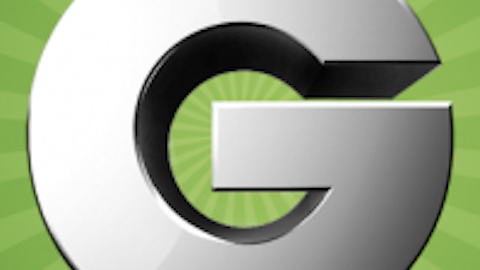
Ensco PLC (NYSE:ESV) was Cohen’s largest stock position in his 13F portfolio at the end of the second quarter. Ensco is up over 20% year to date after a rich acquisition of Pride International for $7.2 billion. Cohen might believe that this drilling service company has seen its near term top, and might see interim pressures related to integration and transition to more offshore projects. Even still, with a positive outlook for the oil and gas industry, the selloff was likely not an easy choice for Cohen. In general, companies with a focus on offshore drilling may see increased competition from onshore operators, given the generally low prices we’re seeing in the natural gas market. Another notable billionaire, Ken Fisher – founder of Fisher Asset Management – was also dumping all of his shares of Ensco during 3Q (see Ken Fisher’s newest picks).
Lockheed Martin Corporation (NYSE:LMT) is a notable selloff for Cohen in 3Q following a huge increase – of almost 4,000% – during 2Q. Sales expectations put growth flat in 2012 and 2013 based on decreased government spending. Lockheed does pay a robust dividend that yields 5%, but the defense company is strapped with nearly $2.5 billion in free cash flow from 2012, and now has over $4.6 billion in cash. The defense company only spent $2.4 billion to purchase shares and $1.1 billion to pay cash dividends in 2011. The downside to Lockheed and the weakness in its shares over the interim will be due to lower U.S. defense spending. As a result, Lockheed’s expected long-term EPS growth rate is now below 7% a year.
Archer Daniels Midland Company (NYSE:ADM) predicts only moderate growth for FY2013 (to end in June) due to weakness in U.S. harvesting as a result of the 2012 drought. We believe that the economic slowdown has caused Cohen to reconsider the long-term prospects of this agriculture company. Revenues for FY2013 are expected to come in relatively flat with harvest shortfalls to blame. Archer is also well above other agriculture and food related peers at a 19x P/E, compared to Bunge (12x) and Ingredion (12x). Fellow billionaire Ray Dalio – who founded Bridgewater Associates – also dumped all of his Archer Daniels shares in 3Q (see Ray Dalio’s top bets).
Knight Capital Group Inc. (NYSE:KCG), after losing over 75% of its market value in a matter of a week due to a $440 million trading loss, is now up over 25% over the past month. Knight is currently entertaining a buyout offer for around $3.50 from Getco Holdings, to acquire the remaining shares that the private equity company does not already own. Cohen may likely have taken his shares off the table following the huge loss after the trading debacle. Knight is expected to only see single digit revenue growth in 2013. We see the trading firm’s 8% long-term growth rate as decent but unspectacular. Investors with enough capital to possibly profit from the buyout could see some upside, as the offer price is nearly 30 cents higher than the stock’s current market price.
Groupon Inc (NASDAQ:GRPN) is another high-profile company that has had little success convincing investors that its business model is sustainable. It appears that Cohen still sees a high degree of investment risk related to the daily deals company. Groupon is down over 75% year to date, and poor Q4 guidance comes as a result of uncertainty regarding the company’s revenue-generating capabilities. This guidance shows expected operating income to come in at around $40 million, well below consensus of $65 million. Last quarter’s results also showed weakness in Groupon’s core business, which saw a 2% revenue decline (yoy) in its North American segment.
In short, we believe that Cohen has made some key selloffs based on company-specific issues, though most are supported by the fundamentals as well. It appears the excitement in Ensco’s shares may be overdone, and Lockheed will likely see more pressure from defense spending cuts. Archer, meanwhile, could be negatively affected by an uncertain crop outlook, not to mention an unstable economic backdrop. The trading firm Knight might see a boost in the near term due to a buyout, but on a standalone basis, the company continues to see issues regarding trader confidence. Groupon’s business model has been in question for several quarters, and rumors of a Google buyout cannot prop up the stock’s price forever.




